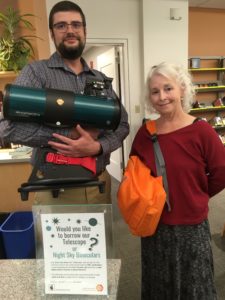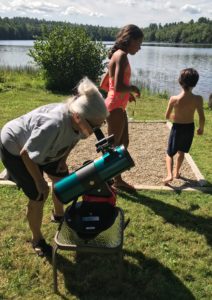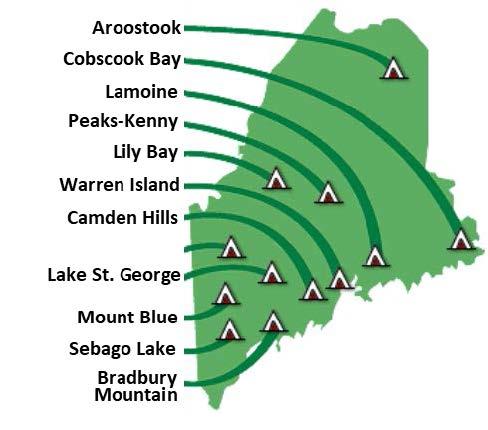When Cornerstones of Science challenged the Nevins Memorial Library to identify a real-life problem it could solve within its own community, the library staff didn’t waste any time.
“We were in a pretty severe drought in the Merrimack Valley, the river was lowering, and all of the communities around Methuen were under a water ban,” recalls Krista McLeod, librarian at the Nevins Memorial Library in Methuen, Massachusetts. But Methuen had not put in a water ban.
McLeod, a resident of Methuen, population around 48,000, was devastated. The small city, perched on the Massachusetts/New Hampshire border, sits squarely within the greater Merrimack River Watershed, and had much to gain and lose regarding the health and productivity of the river, including its importance as a source of drinking water, its recreational and scenic value, and its ecological benefit to birds, fish, and other wildlife.
“During the drought, all of the surrounding communities were regulating their water usage, but in Methuen, people were watering their lawns and letting the sprinklers run in 90-degree heat,” recalls McLeod.
How One Grant Served the Needs of a Community
Working together, and with the help of an IMLS grant that Cornerstones helped facilitate, the library staff decide it could invite local experts to offer programs that would educate the local community about the importance of the watershed, and the broad impacts of environmental degradation and climate change. “Our broad theme became Earth, Sea & Sky,” says McLeod, and a large amount of programming was developed for the community to begin educating itself.
Earth Sea & Sky explores the simple and complex inter-relationships between the earth, the sea, and the sky. “We looked at ozone and air pollution, light pollution; we had an astronomy component; we looked at land issues, such as gardening, how to make rain gardens, how to conserve water; and since the Merrimack feeds into the Atlantic Ocean, we looked at fisheries issues. It was pretty wide ranging,” says McLeod.
Partnering with Others
Importantly, the library knew that it could not do this important work alone, so using resources from the grant, McLeod and her team partnered with qualified organizations within the community who could help.
They reached out to the Merrimack River Watershed Council and local organizations associated with the Merrimack River, such as local land trusts, schools, fishermen’s groups, police officers (who were invested in healthy sport fishing), and other science-based organizations. They supported and promoted river clean-ups, which removed cars and junk from the river. “We had a huge agenda,” recalls McLeod, but working together, it seemed manageable.
The library staff knew the community needed to be introduced gently to some of the more controversial issues – and to see how decisions made at home and in the local community were impacting the community’s shared natural resources. They partnered with respected organizations to develop relevant educational content in a series of collaborations that had never been tried before.
Creating a Travelling Eco-Exhibit
One of the most fruitful partnerships was with the Merrimack River Watershed Council where, with funds from the grant, they created a 6-panel educational exhibit that would travel to communities up and down the Merrimack River Watershed.
The illustrated educational panels address everything from runoff off, to rain gardens, to water supply issues, to history, geography, and economic development issues.
The exhibit has travelled throughout the watershed, visiting 7 libraries for 1-2 months at a stop. The exhibit comes with informed staff members from the Merrimack River Watershed Council who offer free programs along the way. The exhibit has even travelled across state lines into the mountainous headwaters of the Merrimack River.
Creating Long-term Impact & More Programs
The Cornerstones training and partnership has been so successful, that Nevins Memorial Library is looking at even more ways to help connect their patrons and community with STEM experiences and science providers of interest and importance to them. “We realized that science programming is very popular in our community and we are offering more adult programs each year,” says McLeod.
Nevins epitomizes the leadership role libraries can have in helping to connect the public to information around critical science-based issues affecting their communities, says Cynthia Randall, Executive Director, Cornerstones of Science and project lead. “Nevins was one of seven libraries who all had similar successes. “I am excited about the possibilities – if this can happen in seven libraries, it can happen in any library interested in playing this important community role.”
People want to learn how to plant appropriate gardens, how to attract bees and monarch butterflies, how to deal with invasive species. Recently, the library offered an aging brain program in collaboration with a local assisted living community.
“It turns out that people are very interested in science and they will show up for good programs,” remark McLeod. “One of the great roles of libraries today is to present science and scientists to the greater public.”
Learn How to Increase STEM in Your Library
To learn more about how Cornerstones can help your library create approaches that help connect your patrons and community to STEM, give Cornerstones a call at 207-208-8975; or contact us!




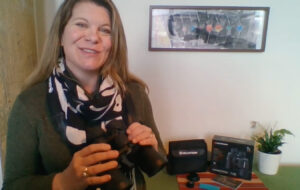 Did you know that you don’t need a telescope to get a closer look at the stars and planets in the night sky? In fact, a simple set of binoculars can provide 7-times the magnification that your normal eyes do.
Did you know that you don’t need a telescope to get a closer look at the stars and planets in the night sky? In fact, a simple set of binoculars can provide 7-times the magnification that your normal eyes do.
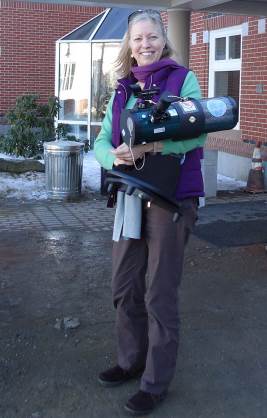 How to Clean Your Telescope
How to Clean Your Telescope
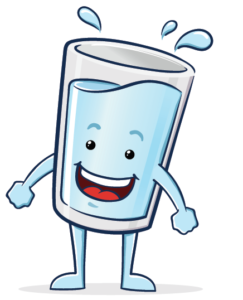 The National Network of Libraries of Medicine (NNLM) has partnered with the National Institutes of Health (NIH)
The National Network of Libraries of Medicine (NNLM) has partnered with the National Institutes of Health (NIH) 

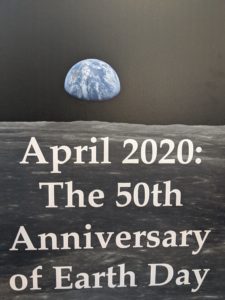 Have you started planning in your community for Earth Day? April 2020 is the 50th anniversary of Earth Day and Citizen Science Month. Find some great resources at
Have you started planning in your community for Earth Day? April 2020 is the 50th anniversary of Earth Day and Citizen Science Month. Find some great resources at 
